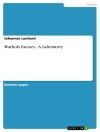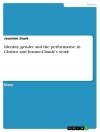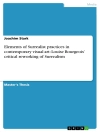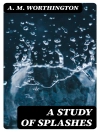In ‘Frondes Agrestes: Readings in ‘Modern Painters, » John Ruskin offers an intricate exploration of the intersection between nature and art, delving deep into the philosophical and aesthetic principles that underpin his renowned work, ‘Modern Painters.’ Ruskin’s masterful prose combines lyrical beauty with analytical rigor, reflecting the Romantic ideals of the era while engaging with the emerging modernist sensibilities. Through critical readings, Ruskin addresses the moral and spiritual dimensions of landscape painting, emphasizing the importance of fidelity to nature and the artist’s emotional response. His treatise is both a manifesto and a critique, cleverly dissecting the implications of artistic representation in a rapidly industrializing world. John Ruskin (1819-1900), a Victorian polymath and social thinker, was profoundly influenced by his early experiences in the English countryside and his intensive studies in the visual arts. His extensive travels throughout Europe and his deep engagement with both literature and philosophy shaped his distinctive views on art and society. An impassioned advocate for the moral role of art, Ruskin believed in the transformative power of beauty, which permeates his writing, pushing against the constraints imposed by the industrial revolution and fostering a renewed appreciation for nature. ‘Frondes Agrestes’ is an essential read for anyone interested in the evolution of art criticism and ecological perspectives in literature. It challenges readers to reconsider the relationship between nature and artistic expression while contextualizing Ruskin’s profound influence on both art history and environmental thought. This book resonates with contemporary debates about sustainability and aesthetic responsibility, making it a timely reflection for modern audiences.
Sobre el autor
John Ruskin (1819–1900) was a prominent Victorian-era English critic of art, architecture, and society, as well as an influential thinker and philanthropist. His works are characterized by the depth and variety of his interests, which ranged from geology to poetry, art, and social theory. Ruskin’s ‘Frondes Agrestes: Readings in ‘Modern Painters» is a curated selection of passages from his larger work ‘Modern Painters’ (1843–1860), in which he argues for the importance of truth to nature in art, advocating for a detailed study of the natural world. Ruskin’s literary style is descriptive, rich in metaphor, and often marked by moral earnestness. His advocacy for the integration of beauty and utility in architecture and design, as well as his concerns for social and environmental issues, influenced the Arts and Crafts Movement and later the formation of the National Trust. As a professor at Oxford and prolific writer, he left a significant intellectual legacy. His complete writings remain vital for those interested in Victorian art, social criticism, and the linkage between aesthetics and ethics.












